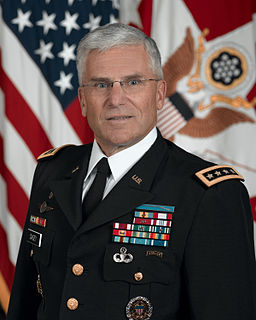A Quote by H. R. McMaster
Consequences of linear thinking in Afghanistan and Iraq included overestimating indigenous forces' capabilities, underestimating the enemy, and the associated expectation that the coalition could soon reduce force levels and shift to an exclusively advisory effort.
Related Quotes
The generals have a saying: "Rather than make the first move it is better to wait and see. Rather than advance an inch it is better to retreat a yard." This is called going forward without advancing, pushing back without using weapons. There is no greater misfortune than underestimating your enemy. Underestimating your enemy means thinking that he is evil. Thus you destroy your three treasures and become an enemy yourself. When two great forces oppose each other, the victory will go to the one that knows how to yield.
Johnny Apple, a New York Times correspondent, wrote a front-page story saying Afghanistan could be a quagmire and he was mocked and derided. What is certainly true is that all sorts of resources that would have been used in Afghanistan were diverted to Iraq. Would those resources have helped? Almost undoubtedly. Whether or not Afghanistan would be a peaceful nation-state had we not gone into Iraq I doubt. Afghanistan is going to be Afghanistan, no matter how hard we try to make it something else.
































